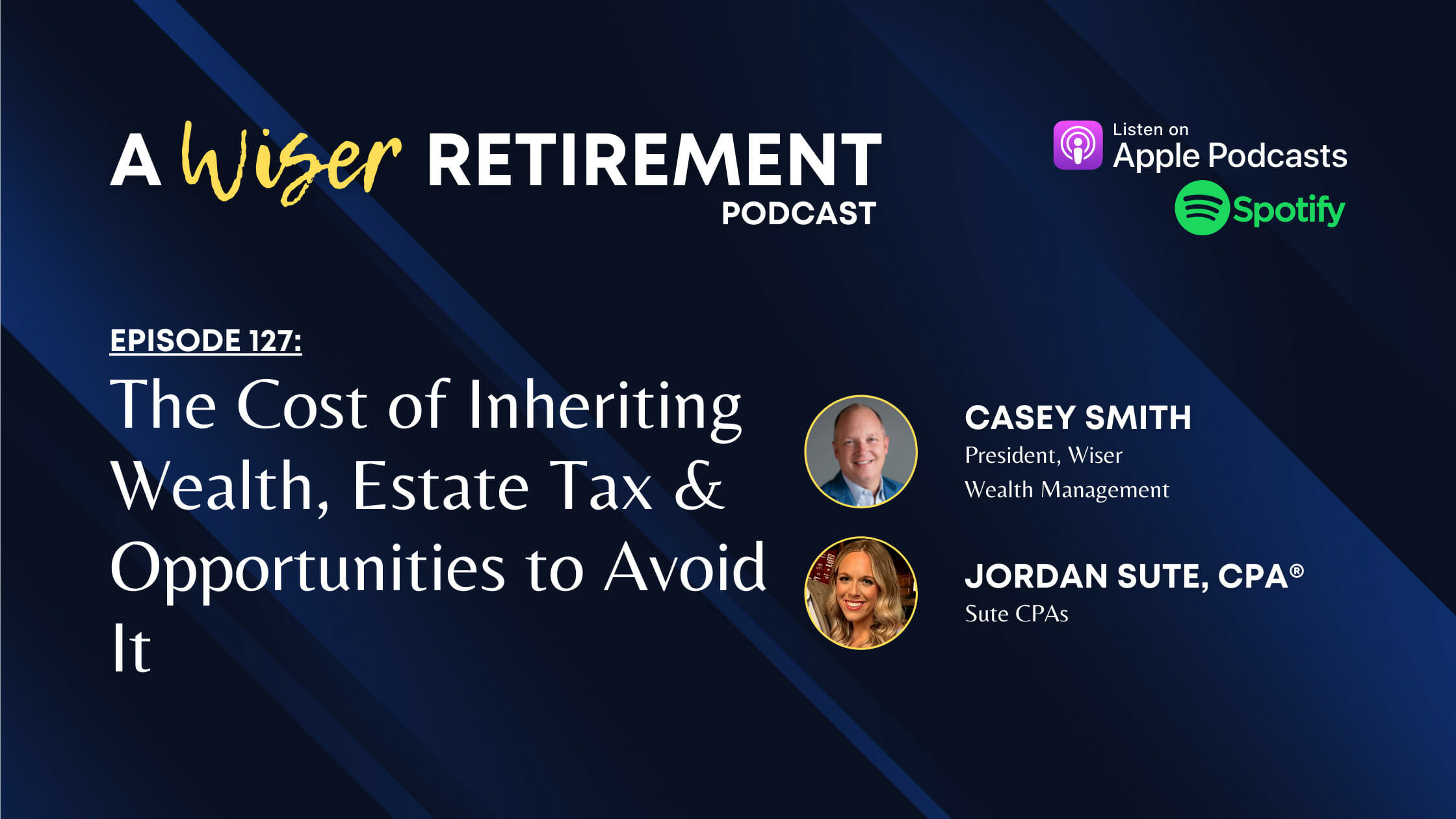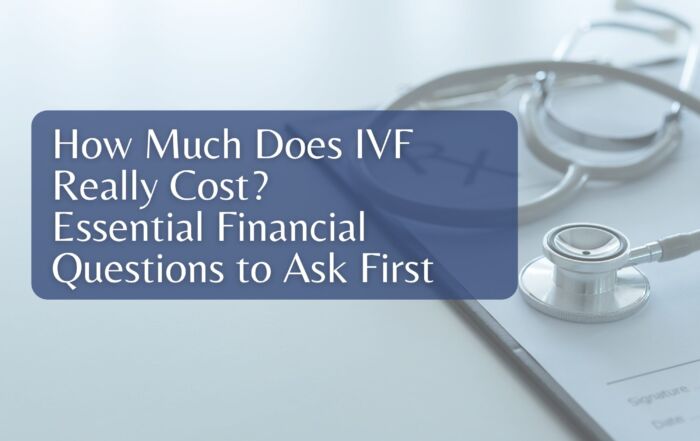
The Cost of Inheriting Wealth, Estate Tax and Opportunities to Avoid It
On this episode of A Wiser Retirement Podcast, Casey Smith is joined by Jordan Sute, CPA, from Sute CPAs. Jordan has been a guest on our podcast many times. She is joining us to talk about the cost of inheriting wealth, estate tax, and opportunities to avoid it.
Listen on Apple Podcasts or watch on YouTube:
SUMMARY:
Made Up Scenario: Inheriting 44 Million Dollars
Say you are inheriting 44 million dollars from your parents… that money will be taxed a lot. If your dad passes away first, but your mom is still living, the dad should pass all of the assets over to the mom because there are unlimited spousal transfers. Then you should elect portability on his estate tax return. By electing portability and passing all the assets over to the mom, we’re just deferring this tax that will be due at some point. Normally, you’d have to file an estate tax return within 9 months of death, and you can get an extension of 6 months on top of that. With the portability election, they recently came out saying that you now have 5 years from the date of death to elect portability.
Structuring a Trust
There’s a lot of flexibility with trusts. There’s also many different types of trusts based on your needs and wants. If you’re interested in setting up a trust, speak with an estate planning attorney to see what type of trust might be best for you.
What gets included in estate tax?
Everything you own minus everything you owe. At the end of the day, everything you own is in your estate, even things like your Roth IRA. Your heirs won’t have to pay income tax if they inherit your Roth IRA, but they could still have to pay estate tax.
Family Limited Partnerships
You pass equity to family members, so when your business gets evaluated, it’s not worth as much as a whole if it’s divided up into fractions. This is a technique used to lower the value of something. This can be done with real estate, such as rental properties. You’d put the property in an LLC, create a family limited partnership through that, and the property won’t be worth as much.
Inheritance Tax vs Gift Tax
These are two very different things that people often get confused. As a married couple, you pay gift tax on anything you gift over $32,000. When you rollover that threshold of $32,000 for a married couple, that starts to eat into your estate tax exclusion. The good thing about inheritance tax is that for federal tax purposes, recipients are never going to pay tax on it. Unless it’s something like an IRA that hasn’t been taxed before.
Generation Skipping Tax
If you want to give money to your grandchildren, there is a limit as to what you can pass down and skip a whole generation. The IRS doesn’t like to see large gifts passed over two generations. There can be an additional layer of tax that comes into play in reporting on the form 709 gift tax return (GSST).
Download our white paper on “7 Steps to Leave a Financial Legacy”
TIMESTAMPS:
0:00 Intro
3:45 Made Up Scenario: Inheriting 44 Million Dollars
7:55 Structuring a Trust
9:41 What gets included in estate tax?
12:00 Family Limited Partnerships
14:23 Inheritance Tax vs Gift Tax
19:55 Generation Skipping Tax
LINKS:
Learn more about Casey Smith and connect with him on Twitter.
CONNECT:
Twitter, Instagram, Facebook, LinkedIn, and YouTube.
Learn more about A Wiser Retirement podcast and access previous episodes.
Share This Story, Choose Your Platform!
Wiser Wealth Management, Inc (“Wiser Wealth”) is a registered investment adviser with the U.S. Securities and Exchange Commission (SEC). As a registered investment adviser, Wiser Wealth and its employees are subject to various rules, filings, and requirements. You can visit the SEC’s website here to obtain further information on our firm or investment adviser’s registration.
Wiser Wealth’s website provides general information regarding our business along with access to additional investment related information, various financial calculators, and external / third party links. Material presented on this website is believed to be from reliable sources and is meant for informational purposes only. Wiser Wealth does not endorse or accept responsibility for the content of any third-party website and is not affiliated with any third-party website or social media page. Wiser Wealth does not expressly or implicitly adopt or endorse any of the expressions, opinions or content posted by third party websites or on social media pages. While Wiser Wealth uses reasonable efforts to obtain information from sources it believes to be reliable, we make no representation that the information or opinions contained in our publications are accurate, reliable, or complete.
To the extent that you utilize any financial calculators or links in our website, you acknowledge and understand that the information provided to you should not be construed as personal investment advice from Wiser Wealth or any of its investment professionals. Advice provided by Wiser Wealth is given only within the context of our contractual agreement with the client. Wiser Wealth does not offer legal, accounting or tax advice. Consult your own attorney, accountant, and other professionals for these services.





